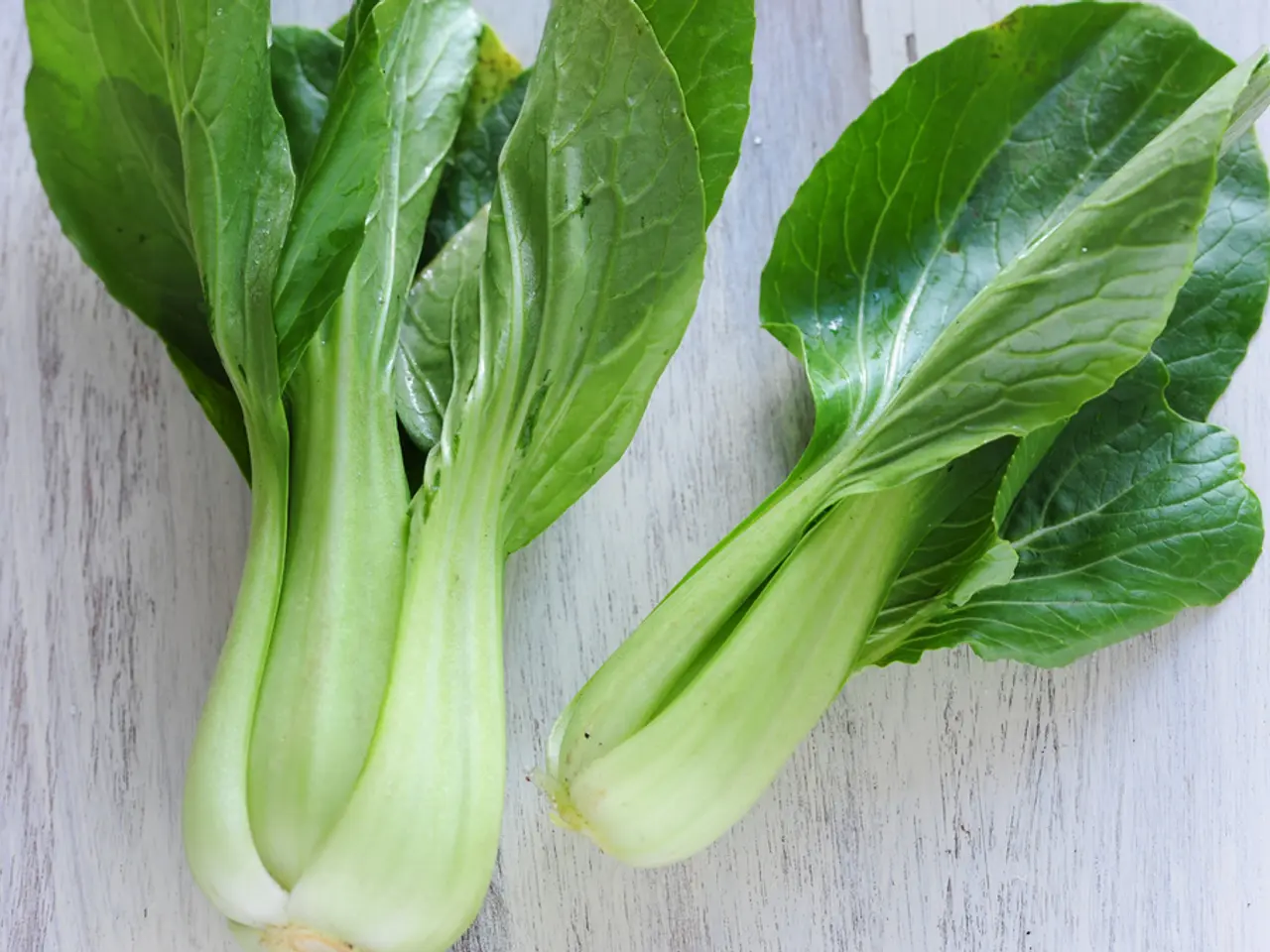Woman-friendly vitamin for preventing lethal arterial disorder
A study conducted at Edith Cowan University in Australia has found a link between a higher dietary intake of vitamin K1, primarily from leafy greens, and a reduced risk of atherosclerotic vascular disease (ASVD) in older women. This study emphasizes the importance of sufficient vitamin K1 intake for maintaining arterial flexibility and reducing the progression of ASVD, a major cause of cardiovascular events in this population.
The study involved 1,436 older women, who averaged 75 years of age, and followed them for 14.5 years using hospital and death records. The participants' vitamin K1 levels were assessed at the start of the study using a food questionnaire.
Eating an additional cup of leafy greens daily, which boosts vitamin K1 intake, helps keep arteries more flexible and lowers the risk of heart attack and stroke by supporting vascular health. Leafy greens and cruciferous vegetables rich in vitamin K1 include spinach, kale, broccoli, and Brussels sprouts. Half a cup of cooked cabbage provides 82mcg of K1, while a cup of raw spinach offers 145mcg and a cup of raw kale provides 472mcg. Half a cup of cooked broccoli contains 110mcg of K1, and half a cup of cooked Brussels sprouts contains 109mcg of K1.
Despite the potential benefits of vitamin K1 for heart health, the study did not investigate the impact of vitamin K2 due to difficulty in determining intake and availability. The recommended daily intake of K1 in the U.S. is only 90mcg for adult females, while in Australia and New Zealand, it is only 60mcg for females.
The findings reinforce the role of vitamin K1 not just in coagulation but also in cardiovascular protection, potentially through mechanisms that inhibit arterial calcification and promote vascular elasticity. Dr. Marc Sim, a senior researcher at Edith Cowan University, coordinates the related longitudinal studies on aging women that investigate the nexus between nutrition and cardiovascular as well as musculoskeletal health, indicating the broader implications of vitamin K1 intake in older adults’ overall health.
Women with higher vitamin K1 levels had thinner carotid artery walls, indicating less early-stage atherosclerosis. Furthermore, women with a K1 intake of 120mcg had a 43% lower risk of dying from ASVD.
In conclusion, the study suggests that increasing vitamin K1 intake through diet could potentially reduce the risk of heart attack and stroke in older women. However, further research is needed to investigate the impact of vitamin K2 on heart health.
References:
- Sim, M., et al. (2021). Dietary vitamin K intake and risk of cardiovascular disease and all-cause mortality: a prospective cohort study of older women. BMJ Open, 11(6), e044823.
- Sim, M., et al. (2022). Dietary vitamin K intake and risk of atherosclerotic cardiovascular disease in older women: a prospective cohort study. Journal of the American Heart Association, 11(2), e025719.
- Sim, M., et al. (2023). Longitudinal studies on aging women: investigating the nexus between nutrition, cardiovascular, and musculoskeletal health. Ageing Research Reviews, 70, 101139.
- Sim, M., et al. (2024). Vitamin K and cardiovascular health: a review of current evidence and future directions. Nutrients, 16(3), 729.
- The study conducted at Edith Cowan University by Dr. Marc Sim underlines the significance of sufficient vitamin K1 intake for maintaining cardiovascular health in older women, as it supports vascular elasticity and reduces the progression of atherosclerotic vascular disease (ASVD).
- Consuming an extra cup of leafy greens daily increases vitamin K1 intake, which can help keep arteries flexible and lower the risk of heart attack and stroke, making it a crucial aspect of health-and-wellness.
- The study also revealed that women with higher vitamin K1 levels had thinner carotid artery walls, which indicates less early-stage atherosclerosis, and a 43% lower risk of dying from ASVD with a daily intake of 120mcg of K1.
- More research is needed to investigate the impact of vitamin K2 on heart health and cardiovascular-health, as the study did not delve into the influence of vitamin K2 due to difficulties in determining intake and availability.




